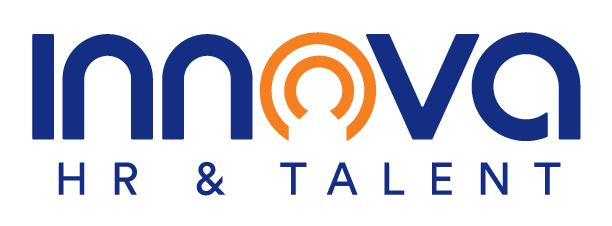Job Description
In addition to the responsibilities listed below, this position is also responsible for assessing and identifying any issues regarding inventory, operation, repair and maintenance of high and low fidelity simulators and associated equipment, supplies and consumables; working alongside the department Manager and nurses to verify the Regional Simulation Center can deliver timely training programs and services; ensuring training program adherence to professional organizations (e.g., American Heart Association) guidelines to ensure curriculum accuracy; coordinating the procurement and inventory of supplies, and escalating repair and maintenance of equipment and consumables, within budget constraints; reviewing data collection systems and processes for statistical analysis; ensuring the accuracy and maintenance of records of current inventory, purchases, warrantees, and repairs; ensures the safety and maintenance of the Regional Simulation Lab and associated locals to meet Occupational Safety and Health Administration (OSHA) requirements and present a hospitable learning environment; maintaining comprehensive knowledge of current simulation theory, operations standards, and technological advances; and working alongside others to keep website content current and accurate and in accordance with web design policies and standards.
Essential Responsibilities
- Completes work assignments autonomously by applying up-to-date expertise in subject area to generate creative solutions; ensures all procedures and policies are followed; leverages an understanding of data and resources to support projects or initiatives. Collaborates cross-functionally to solve business problems; escalates issues or risks as appropriate; communicates progress and information. Supports, identifies, and monitors priorities, deadlines, and expectations. Identifies, speaks up, and implements ways to address improvement opportunities for team. , Pursues effective relationships with others by proactively providing resources, information, advice, and expertise with coworkers and members. Listens to, seeks, and addresses performance feedback; provides mentoring to team members. Pursues self-development; creates plans and takes action to capitalize on strengths and develop weaknesses; influences others through technical explanations and examples. Adapts to and learns from change, challenges, and feedback; demonstrates flexibility in approaches to work; helps others adapt to new tasks and processes. Supports and responds to the needs of others to support a business outcome. , Supports other groups within or outside the company by: consulting on learning modality the client should use start identifying the root cause.
- Works on design and development of trainings by: revising standard content (e.g., training aids) and starting to build out a basic course, and pieces of a non-standard course while reviewing guidelines to ensure curriculum accuracy, and providing troubleshooting as needed; identifying potential training methods (e.g., e-learning, in-person, classroom, on-site, just-in-time support, web sessions, blended learning, and conference calls) and programs; identifying training objectives for education modules, participating in the revision of training modules and review of supporting materials; guiding the prioritization of short-term and long-term learning goals to help the business unit reach and understand these objectives; and recommending and researching alternative training techniques, procedures, and/or methods.
- Gathers program’s training needs by: conducting standard and non-standard needs assessments for training and or performance issues.
- Monitors effectiveness of training by: using comprehensive foundational knowledge to measure the effectiveness of training to support business needs.
- Completes work assignmentsand supports completion of projects by: developing, analyzing, and executing standard and non-standard project/program plans which include scope identification and management, schedule, inter-dependencies, and resource forecast.
- Further examines how to refine training and delivery by: applying research on training norms and industry standards, within the assigned area with guidance; and applying research in training/education programs to improve stakeholder activities and enhance personnel growth and development.
- Responsible for aiding in effective training delivery by: delivering the training of program(s) (e.g., orientation, customer service, and supervisory skills); supporting learners’ comprehension by leveraging adult learning principles; analyzing results from evaluations to assess the application of skills, knowledge, and training objectives; analyzing and communicating feedback of the results of the training assessment and summarizing results; and serving as a trainer by leading standard and non-standard training, independently and using best practices for training modalities (e.g., virtual, in-person classroom).”
Minimum Qualifications
- Bachelor’s Degree in Business, Communication, Education, Behavioral Science, Instructional Design, Educational Technology, Computer Science,or a directly related field AND minimum three (3) years of experience in training delivery, curriculum design, training development and evaluation, or a directly related field, OR Minimum six (6) years of experience in training delivery, curriculum design, training development and evaluation, or a directly related field.
Additional Requirements
- Extensive Experience: Strong experience in instructional design or related fields.
- Instructional Design Expertise: Deep understanding of instructional design theories, models (e.g., ADDIE, SAM), and best practices.
- Instructional Design Technology Expertise: Deep understanding of instructional design tools such as learning management systems (LMS), authoring tools (e.g., Articulate Storyline, Adobe Captivate), and multimedia software.
- Project Management: Project management skills, with experience leading complex instructional design projects.
- Technical Proficiency: Proficiency with simulation software (e.g., Simul8, Unity, Unreal Engine), VR/AR technologies, and related tools.
- Scenario Design: Ability to create realistic and engaging scenarios that meet specific learning objectives.
- Communication Skills: Excellent verbal and written communication skills, with the ability to convey complex concepts clearly.
- Creative Problem-Solving: Creative and innovative thinking to develop engaging and effective learning experiences.
- Interpersonal Skills: Strong interpersonal skills to collaborate effectively with SMEs, team members, and stakeholders.
- Attention to Detail: High attention to detail to ensure the accuracy and quality of instructional materials.
Preferred Qualifications
- Two (2) years of training simulation-related experience.
- Certified Healthcare Simulation Operations Specialist (CHSOS) certification.
- Two (2) years of experience delivering management and leadership training.
- Two (2) years of experience developing management and leadership training.
- A master’s degree in instructional design, education, educational technology, or a related field is often preferred.”
Benefits
- Transportation.
- Life insurance.
- Medical insurance.
- Solidarity association.
- Growth plans.
- Additional days off.

